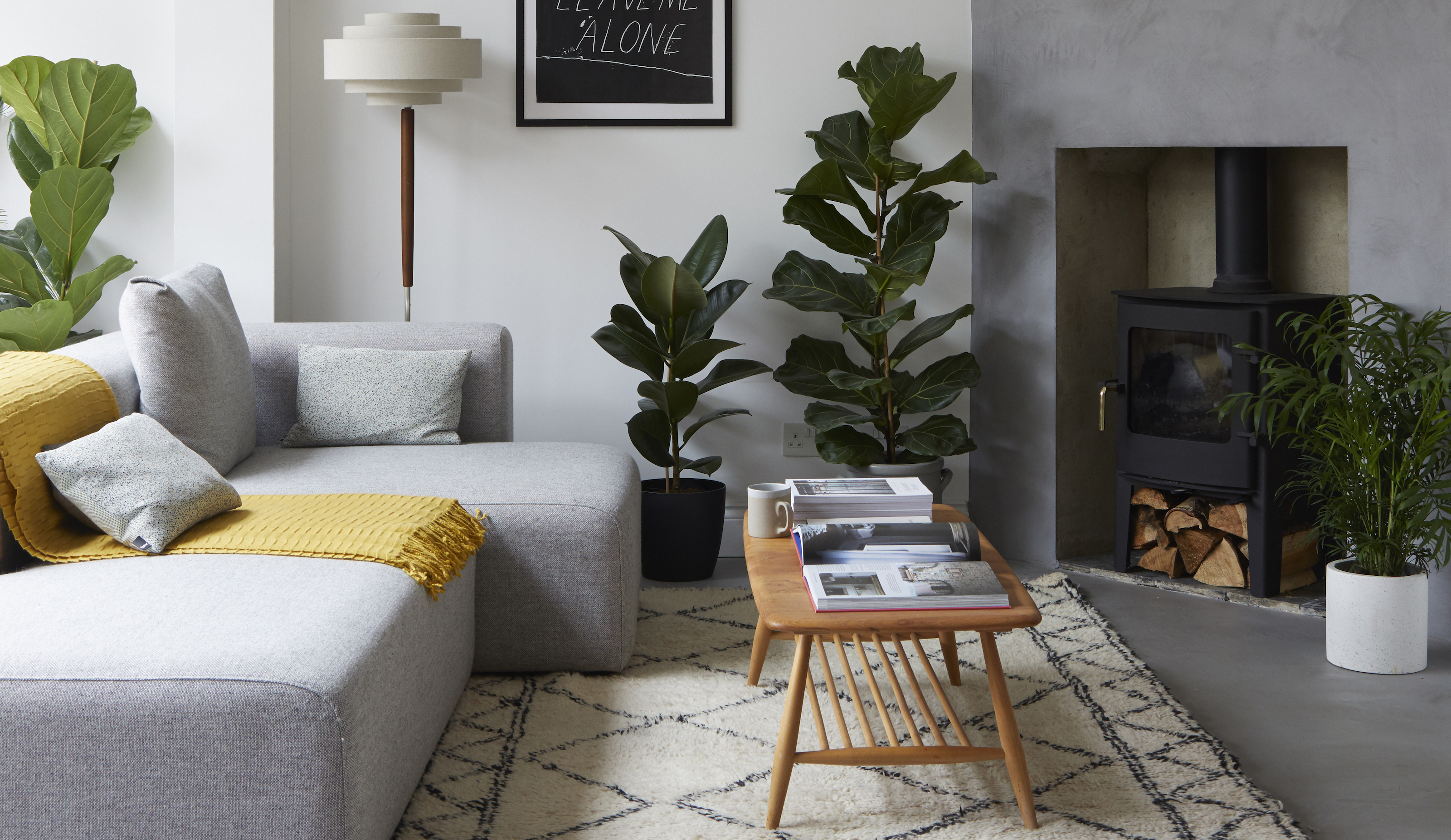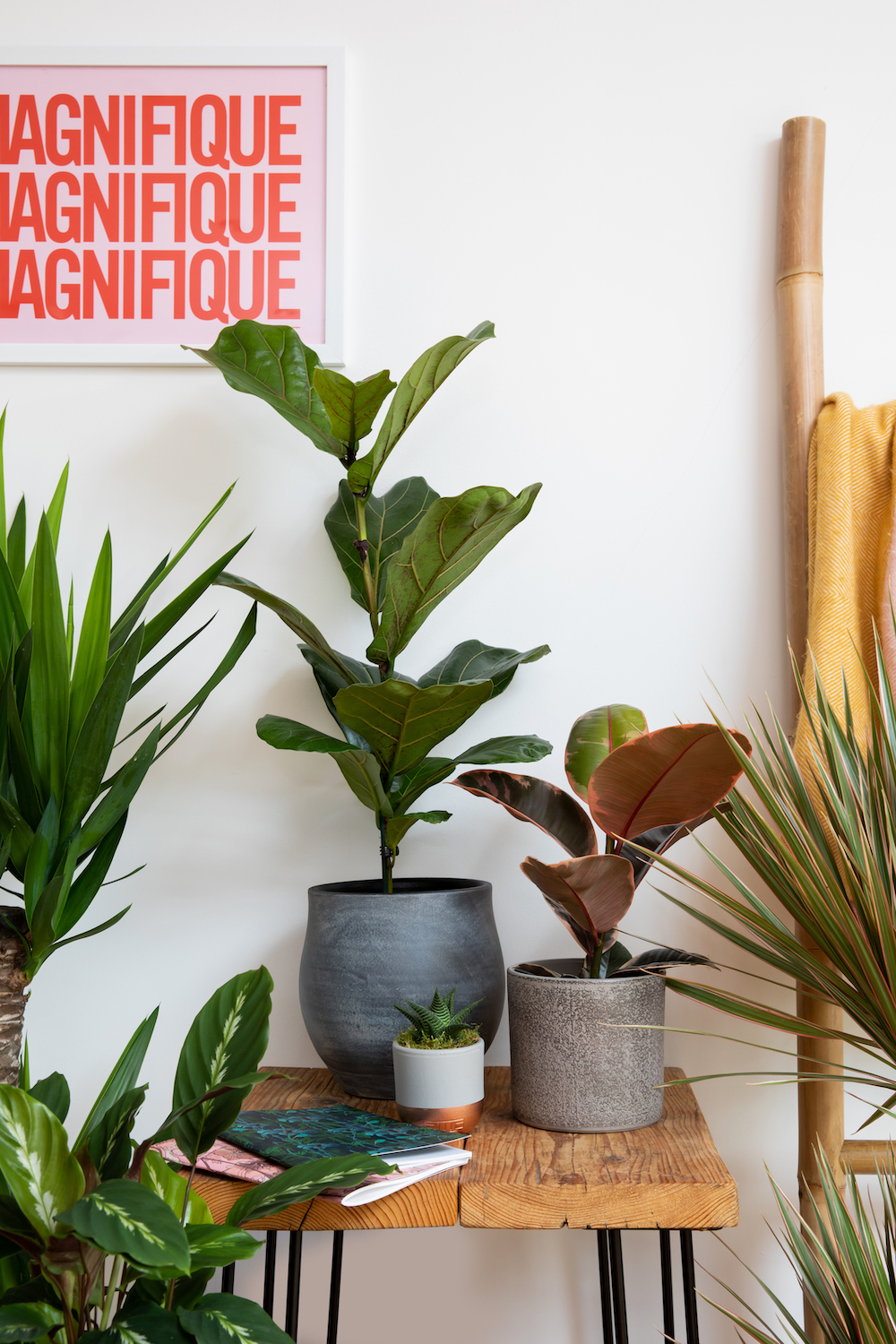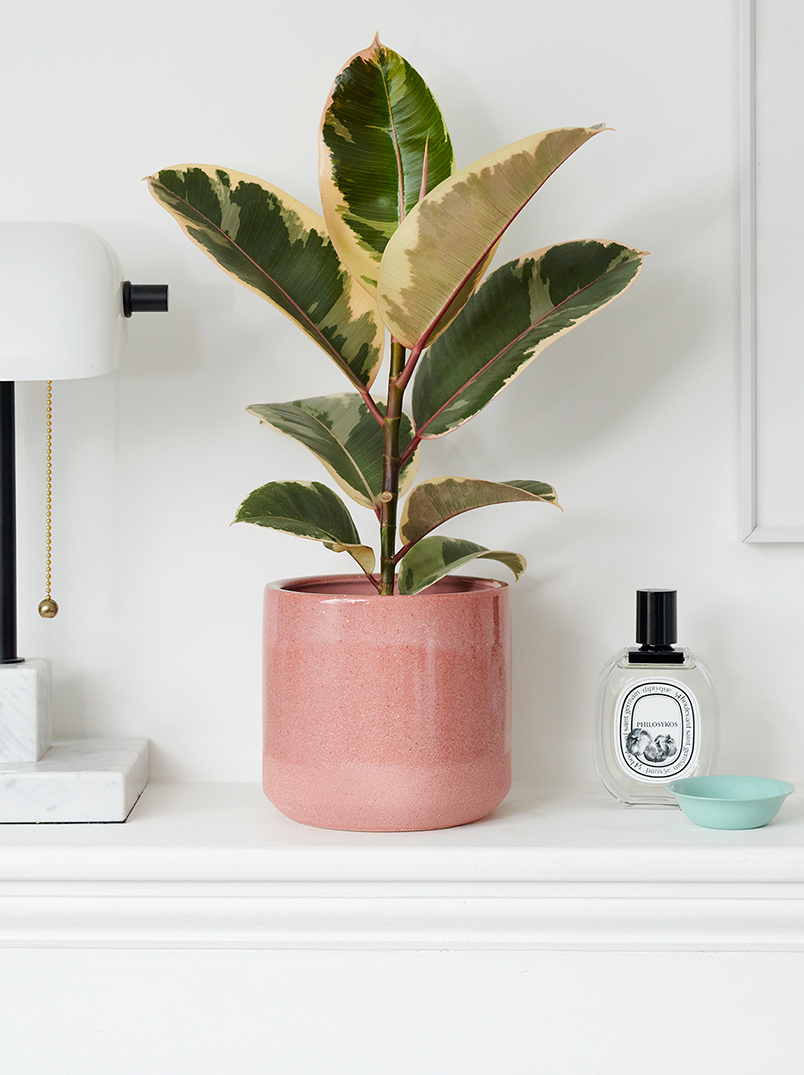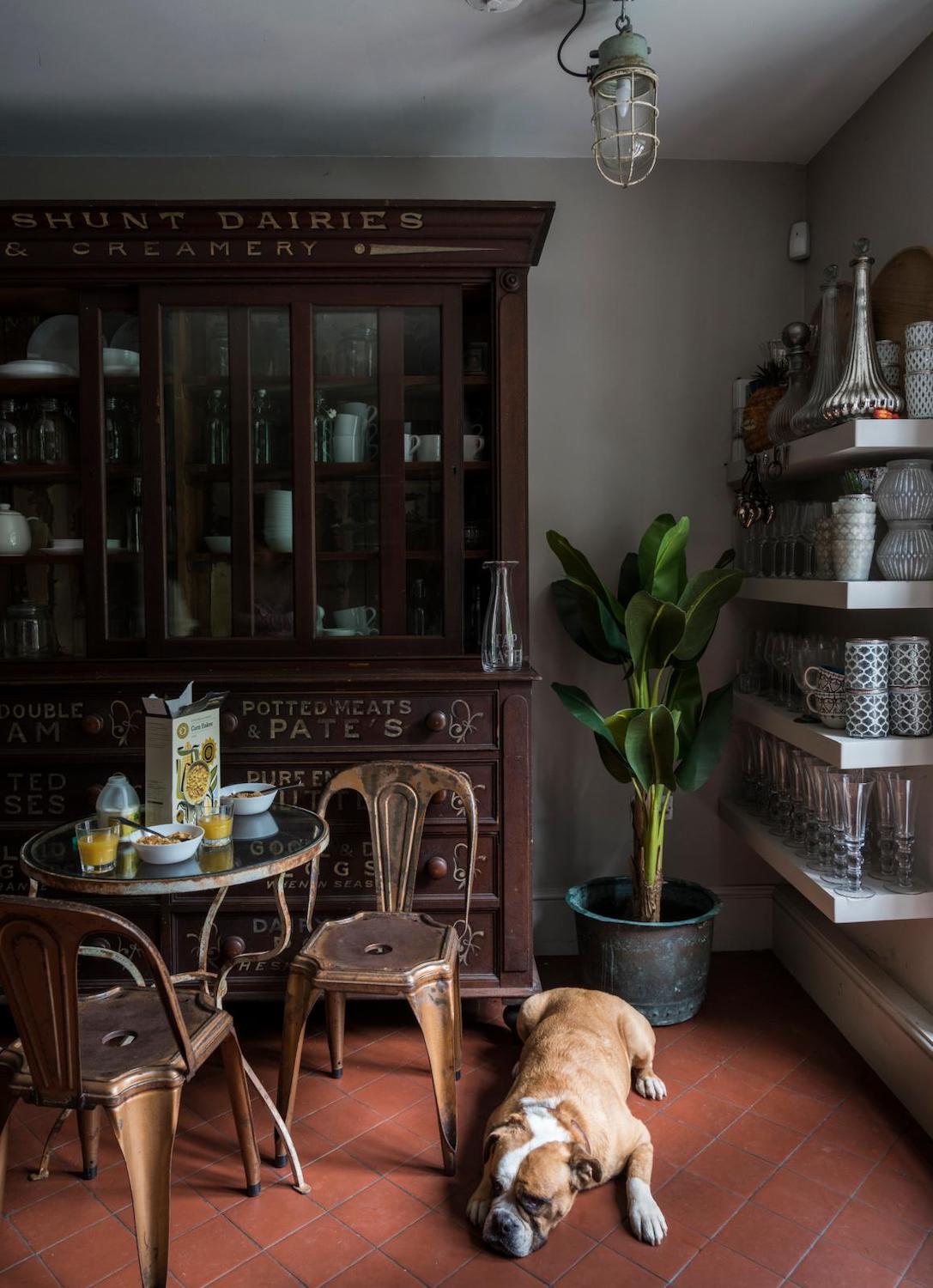Rubber plant care – 5 simple steps to a flourishing Ficus Elastica
Learn the basics of rubber plant care as plant experts reveal how to ensure this glossy leafed beauty thrives

The Livingetc newsletters are your inside source for what’s shaping interiors now - and what’s next. Discover trend forecasts, smart style ideas, and curated shopping inspiration that brings design to life. Subscribe today and stay ahead of the curve.
You are now subscribed
Your newsletter sign-up was successful
If rubber plant care is high on your agenda, you may have embraced these glossy retro beauties. The seventies revival in interiors hasn't just seen the return of rattan furniture and cork flooring. Certain plants popular at this louche time of the last century have seen a comeback too, the rubber plant among them.
'The rubber plant, or Ficus Elastica, is high up on most plant lovers’ wish lists,' says Jo Lambell, founder of plant delivery service Beards & Daisies. 'With its big glossy leaves and statuesque size, it's one of the best houseplants for beginners and makes a statement in any room. It works especially well alongside mid-century style furnishings, bringing retro texture and lush color to your home.'
While a rubber plant might be easy to care for, there are some things you need to know. Here the experts lay out the basics of rubber plant care.
How to care for rubber plants
How much light does a rubber light like? And how much should your water it? Our experts have all the answers.
1. Give it bright, indirect light

Finding the right spot for a house plant to thrive is crucial. This will make life easier for the plant - and for you - as if it's happy there will be no need to troubleshoot.
'Rubber plants are best suited in a sunny spot, such as a bright kitchen or bedroom,' says Morag Hill, co-founder of The Little Botanical. 'Insufficient light can cause those gorgeous glossy leaves to drop so be sure to give it good light to keep it happy.
'That said, while the rubber plant likes plenty of light, like most houseplants several hours in direct sunlight during the summer can cause scorching, so bright indirect light is best.'
The Livingetc newsletters are your inside source for what’s shaping interiors now - and what’s next. Discover trend forecasts, smart style ideas, and curated shopping inspiration that brings design to life. Subscribe today and stay ahead of the curve.
'An east or west-facing window would be ideal or further back from a south-facing window out of the direct sun,' adds Jemma Charman, co-founder of the Green Rooms Market. 'The gorgeously patterned variegated varieties can handle short spells of direct sun, and the non-variegated varieties can tolerate shadier areas, but might be slow to produce new growth.'
2. Don't move them around too much

Remember a plant is a living thing, so while it might be tempting to rearrange your shelves and surfaces, if it's happy, try to keep your Ficus Elastica in the same spot.
'A common mistake many owners make is they move their rubber plant around too much,' says Morag Hill, The Little Botanical. 'Once you’ve found a good spot with a healthy amount of sunlight, let it acclimatize to allow the leaves to flourish.'
'Any sudden changes in temperature will upset it and could cause leaf drop,' adds Jo Lambell of Beards & Daisies. 'Keep your rubber plant out of drafts and avoid moving it around.'
3. Water weekly, or less

Many plants suffer from over or under-watering, so gauging how much is right will help your rubber plant flourish.
'One of the biggest killers of Rubber plants is too much water,' says Jemma Charman, co-founder of Green Rooms Market. 'They will be happiest if left to dry between waterings. You can stick your finger into the soil and if the soil feels dry and your finger has no soil stuck to it, that will be the time to water.
'It's always best to use room temperature water (and ideally rainwater) so not to shock the plant with cold water.
'Rubber plants are like succulents, in that they store water in their thick leaves,' says Jo Lambell. 'So they don’t need watering as regularly as you might think. Water your rubber plant when its top 2 inches of soil feel dry to the touch.'
'Weekly in the summer and slightly less frequently in the winter is usually perfect,' adds Morag Hill.
4. Dust and mist its leaves
Apart from not looking great, a layer of dust covering your rubber plant's leaves will prevent it from being able to photosynthesize, which is key to its survival.
'The Rubber plant has smooth, shiny leaves, adding gorgeous tropical vibes to any indoor jungle,' says Morag Hill. 'So to keep them looking their best, make sure you dust those leaves with a damp cloth.'
'Rubber plants appreciate regular misting too,' says Patch's plant doctor, Richard Cheshire.
5. Feed your rubber plant
It can be hard to know if houseplants needs feeding, and if so, when or how often to do so.
'It's a good idea to feed rubber plants throughout spring and summer this will give them an extra boost of nutrients to encourage growth,' says Jemma Charman.
'Rubber plants will benefit from a feed with liquid fertiliser once a month in spring and summer,' says Patch's plant doctor, Richard Cheshire.
How much sunlight does a rubber plant need?
Rubber plants like bright indirect light but keep them out of direct sunlight to prevent their leaves from getting scorched.
How do I know if my Rubber plant needs water?
Check the soil, if the top 2 inches are dry, it's time to water your Rubber plant.
Jacky Parker is a freelance lifestyle journalist and writer, producing a wide range of features for magazines and digital platforms. She has written for Livingetc and its sister titles, Homes & Gardens and Country Homes & Interiors for more than 15 years, both as a freelance contributor and as Acting Digital Editor and Acting Style Content Editor, regularly reporting on the latest interiors, gardens and wellness inspiration, speaking to experts in their respective fields, and discovering the best tips.
Jacky has also written for other publications, including Sunday Times Style, The Telegraph, Architectural Digest, House Beautiful, ELLE Decoration, Red, Grand Designs and more.